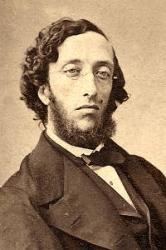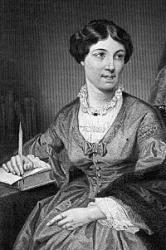
1741 - 1801 Person Name: J. C. Lavater Author of "The Indwelling Christ" in The Fellowship Hymn Book Lavater, Johann Caspar, son of Johann Heinrich Lavater, physician in Zürich, was born at Zürich, Nov. 15, 1741. He entered the Academic Gymnasium at Zürich in 1758, and in the end of 1759 began his studies in its theological department. After completing his course he was ordained in the spring of 1762, but did not undertake any regular clerical work till April 1769, when he was appointed diaconus of the Orphanage church at Zürich, where he became pastor in 1775. In July 1778 he was appointed diaconus of St. Peter's church, and in Dec. 1786 pastor there. When, during the Revolutionary period, the French laid the Swiss Cantons under contribution, and then in April 1799 deported ten of the principal citizens of Zürich, Lavater felt compelled to protest in the pulpit and in print. Consequently while on a visit to Baden, near Zürich, he was seized by French dragoons, May 14, 1799, and taken to Basel, but was allowed to return to Zürich, Aug. 16, 1799. When on Sept. 25, 1799, the French under Massena entered Zürich, Lavater was treacherously shot through the body by a French grenadier, who had just before thanked him for his charity, and from this wound he never entirely recovered. He resigned his charge in January 1800, and died at Zürich, Jan. 2, 1801. (Koch, vi. 499; Allgemeine Deutsche Biographie, xvii. 783, &c.)
Lavater was one of the most celebrated and influential literary characters of his time; a most popular and striking preacher; and a lovable, genuine, frank-hearted man, who was the object of an almost incredible veneration. His devotional writings (Aussichten in die Ewigkeit, 4 vols., Zürich,1768-78, &c), and his works on Physiognomy (Von der Physiognomik, Leipzig, 1772; Physiognomische Fragmente, 4 vols., Leipzig and Winterthur, 1775-78), were eagerly read and admired all over Europe, but were very soon forgotten. He was no theologian, and his warm heart and fertile imagination led him into many untenable positions. His works on Physiognomy are without order or philosophical principles of connection, and their permanent interest is mainly in the very numerous and often well-executed engravings. Of his poems the Schweizerlieder (Bern, 1767, 4th enlarged ed., 1775), are the utterances of a true patriot, and are the most natural and popular of his productions. His Epic poems ((1) Jesus Messias, oder die Zukunft des Herrn, N.D., Zürich, 1780, a poetical version of the Apocalypse; (2) Jesus Messias, oder die Evangelien und Apostelgeschichte in Gesängen, 4 vols., Winterthur, 1733-86. (3) Joseph von Arimathea, Hamburg, 1794) have little abiding value.
As a hymn-writer Lavater was in his day most popular. His hymns are well adapted for private or family use. Many of them are simple, fresh, and popular in style, and evangelical, earnest and devout in substance. But for church use he is too verbose, prolix, and rhetorical. Of his hymns (some 700) a considerable number survive in German collections compiled before 1850, e.g. the Berlin Geistliche Lieder, ed. 1840, has 13; the Württemberg Gesang-Buch, 1843 has 15; the Hamburg Gesang-Buch,1842, has 23,&c.
But in the more recent collections almost all have disappeared, e.g., the new hymn-book for the Kingdom of Saxony, 1883, has not a single one. The most important appeared principally in the following works:—(1) Funfzig Christlicher Lieder, Zürich, 1771. (2) Lieder zum Gebrauche des Waysenhauses zu Zürich, Zürich, 1772. (3) Christliche Lieder der Vaterländischen Jugend, besonders auf der Landschaft, gewiedmet, Zürich, 1774. (4) Zweytes Funfzig Christlicher Lieder, Zürich, 1776. (5) Christliche Lieder . . . Zweytes Hundert, Zürich, 1780. (6) Sechszig Lieder nach dem Zürcherischen Catechismus, Zürich, 1780. [Nos.1-6 in the Royal Library, Berlin, and 3-6 in the British Museum]
Those of his hymns which have passed into English include:—
i. 0 du, der einst im Grabe lag. Sunday. In his Lieder, &c, 1772, No. 7, in 9 stanzas of 4 1., entitled "Sunday Hymn." Included in the Zürich Gesang-Buch, 1787 and 1853; Bunsen's Versuch, 1833, No. 6, &c. The translation in common use is :—
0 Thou, once laid within the grave. A good translation, omitting st. iii., vii., viii., by H. J. Buckoll, in his Hymns from the German, 1842, p. 9. Repeated, abridged, in the Dalston Hospital Hymn Book 1848, and the Rugby SchoolHymn Book, 1850 and 1876.
Another translation is: "0 Thou who in the grave once lay," by R. Massie, in the British Herald, June, 1865.
ii. 0 Jesus Christus, wachs in mir. Sanctification. His finest hymn. Founded on St. John iii. 30. First published in his Christlcehe Lieder, 1780, No. 85, in 10 stanzas of 4 1., marked as "On New Year's Day, 1780," and with the motto "Christ must increase, but I must decrease." In Knapp's Evangelischer Lieder-Schatz, 1837, No. 1644. The translation in common use is:—
0 Jesus Christ, grow Thou in me. A good and full translation in theBritish Messenger for Nov. 1, 1860. In Schaff's Christ in Song, 1870, p. 108, it is marked as translated by Mrs. E. L. Smith, the statement that this was its first appearance being an error. If the translation is really by her, it must have appeared in some American publication prior to Nov. 1860. It has passed, in varying centos, into the Baptist Hymnal, 1879, Snepp's Songs of Grace & Glory, 1872, Supplement of 1874 to the New Congregational Hymn Book, and others: also in Hymns & Songs of Praise, N. Y., 1874, Christian Hymnal Adelaide, 1872, &c.
iii. 0 süssesteir der Namen all. Name of Jesus, or, New Year. First published in his Sechszig Lieder, 1780, No. 25, in 4 stanzas of 7 1., as the second hymn on "Jesus Christ, the only begotten Son of God, our Lord. Second article of the Christian Faith." It is appointed for the 16th Sunday, and for the 39th and 40th questions of the Zürich Catechism. In the Berg Mark Gesang-Buch, 1835, No. 319; and included in a number of the German Roman Catholic Hymn Books as those for St. Gall, 1863, Rottenburg, 1865, and others. The translation in common use is:—
0 Name, than every name more dear. A good translation of stanzas i., iii., iv., by A. T. Russell, in his Psalms & Hymns, 1851, No. 68. Repeated in Maurice's Choral Hymn Book, 1861, Methodist New Connexion Hymn Book, 1863, New Zealand Hymnal, 1872, &c.
iv. Vereinigt zum Gebete war. Whitsuntide. First published in his Christliche Lieder, 1774, No. 23, in 15 stanzas of 4 lines. The form translation into English is that in Bunsen's Versuch, 1833, No. 225, which begins, "O Geist des Herrn! nur deine Kraft," and consists of stanza x. lines 3, 4; xi. lines 1, 2; xii.-xv. The translation is:—
0 Holy Ghost! Thy heavenly dew. A good translation from Bunsen, by Miss Cox, in her Sacred Hymns from the German, 1841, p. 43, and the Gilman-Schaff Library of Religious Poetry, ed. 1883, p. 814. Slightly altered in Lyra Messianica, 1864, p. 386, and thence in Alford's Year of Praise, 1867. Again slightly altered in Miss Cox's Hymns from the German, 1864, p. 67, and thence in J. L. Porter's Collection, 1876.
Another translation is: "Blest Spirit, by whose heavenly dew," by Lady E. Fortescue, 1843, p. 10.
The following are not in English common use:—
v. Ach! nach deiner Gnade schmachtet. Cross and Consolation. Zweytes Funfzig, 1116, No. 5, in 8 stanzas, entitled "The Conflict of Prayer in hours of darkness." The translations are: (1) "As the hart for water panteth, So my soul," by R. Massie, in the British Herald, March 1865, p. 40. (2) "Lord for Thee my soul is thirsting," by R. Massie, in theDay of Rest, 1877, vol. vii. p. 58.
vi. Auf dich, mein Vater, will ich trauen. Cross and Consolation. Christliche Lieder, 1774, No. 4, in 8 stanzas, entitled "Encouragement to trust upon God." The translations are (1) "On Thee will I depend, my Father," by R. Massie, in the British Herald, May, 1865, p. 66. (2) "On Thee I build, 0 heavenly Father," by R. Massie, in the Day of Rest, 1878, vol. viii. p. 378.
vii, Von dir, o Vater, nimmt mein Herr. Cross and Consolation. Funfzig Christlicher Lieder, 1771, No. 33, in 15 stanzas, entitled "Encouragement to Patience." Translated as, "Father! from Thee my grateful heart," by Miss Knight, in her Translations from the German in Prose and Verse, 1812, p. 89.
Besides the above a considerable number of pieces by Lavater have been translated by Miss Henrietta J. Fry, in herPastor's Legacy, 1842 (which consists entirely of translations from Lavater); in her Hymns of the Reformation, 1845; and in her Echoes of Eternity, 1859. [Rev. James Mearns, M.A.]
--John Julian, Dictionary of Hymnology (1907)
Johann Caspar Lavater


 My Starred Hymns
My Starred Hymns





